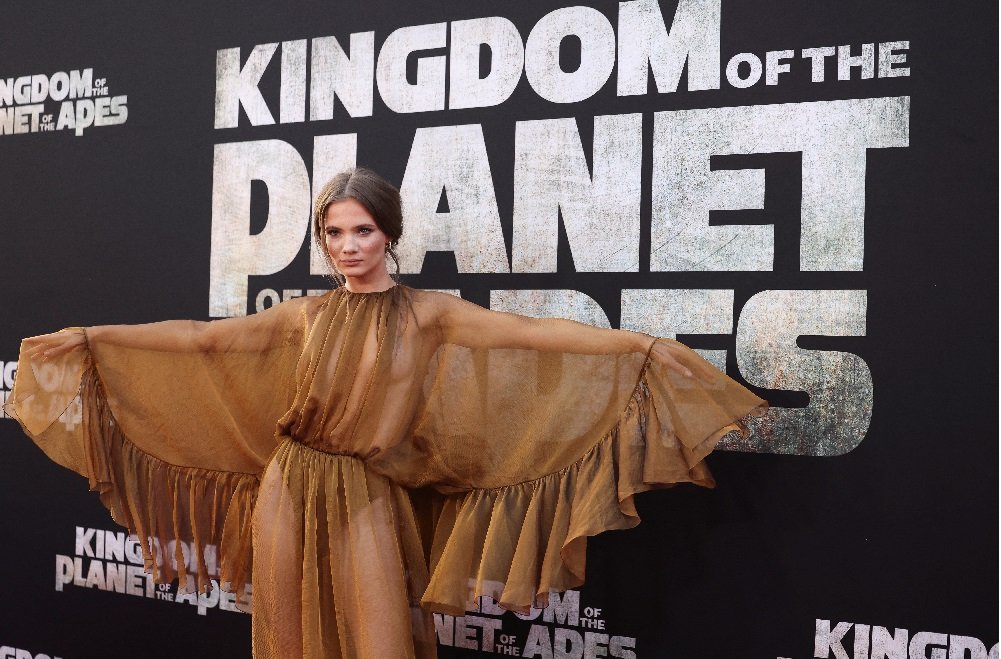
When Freya Allan arrived on set for the first day of filming “Kingdom of the Planet of the Apes,” she was in for a surprise.
“I walked into this basement and Owen just came towards me as an ape, and there were just a bunch of them running around,” said Allan, who plays a human named Mae.
“I was like ‘Here we go! This is gonna be the next six months of my life,’” added the 22-year-old British actress.
The film’s lead, Owen Teague, who plays a chimpanzee named Noa, went to "ape school," along with many other cast members to prepare for their roles.
“We were working on the movement and the voices, and we had this wonderful teacher, Alain Gauthier, who helped us find our bodies as apes, but it was also a bonding experience for the whole ape cast,” Teague said.
Disney’s 20th Century Fox film, directed by Wes Ball, serves as the franchise’s 10th film in total and the fourth installment of the “Planet of the Apes” reboot films.
It takes place 300 years after “War for the Planet of the Apes” and follows young chimp Noa as he tries to protect his clan from a corrupt monarch named Proximus Caesar, who warps the teachings of the original Caesar.
Noa befriends Mae and an orangutan named Raka as they work together to shape the destinies of both apes and humans.
The science-fiction film arrives in theaters on Friday.
Peter Macon, who portrays Raka, also appreciated the opportunity to attend ape school to immerse himself in the ape world.
“School began with studying the skeletal structures of various apes that we were taking on,” he said.
“Orangutans have very different skeletal structures than gorillas, than chimpanzees, than bonobos, so they’re all different,” he added.
He quickly realized that, as the only orangutan in the film, he would have slower movements while all people playing different types of apes could run, jump and participate in faster action.
For Kevin Durand, who plays the bonobo ape Proximus Caesar, meeting his co-stars as apes before meeting them as their real-life human selves was special.
“We all gave each other license by going into this world together, and just believing in each other and really connecting with each other,” Durand said.
“Out of those connections, is performances,” he added.


You must be logged in to post a comment.